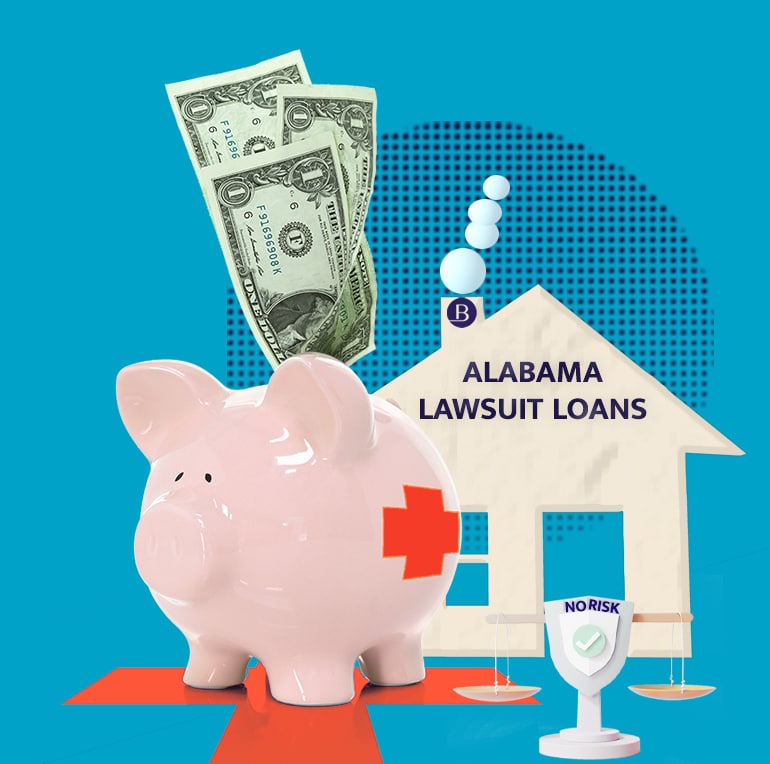
Lawsuit funding in Alabama is a risk-free cash advance, meaning that you don’t have to pay back money if you don’t win your case. Plaintiffs in Alabama no longer need to worry about money due to litigation drawbacks. If cash is the problem, the experienced lenders at Baker Street Funding can offer a solution. Our team is passionate about helping you borrow the money you need so you can get the settlement you deserve. We care about you – which is why we are committed to fast funding decisions and quick turnaround times. Whether this is your first time borrowing from your potential settlement or looking to change companies to lower your interest rate, we have the pre-settlement funding solution for you. Our financing options are focused on helping you meet a specific financial need that fits your situation.If you live in Birmingham, Montgomery, Mobile, Huntsville, Tuscaloosa, Hoover, or any of the 461 cities in Alabama, you could qualify for a fast pre-settlement loan advance to tide you over while your case is pending. And, don’t worry, you can still work with real people who value your time in need. If you want to speak with a legal funding representative, apply for a lawsuit loan now and someone will be in touch soon.





















